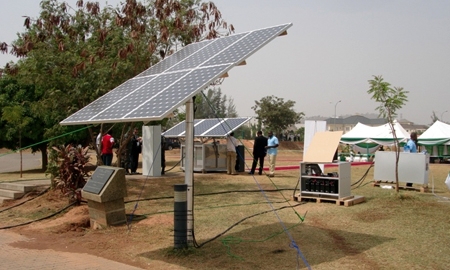A 2011 report by the World Trade Organisation, called Trade Policy Review, points out that electricity generation dropped from 4,200 MW in 2003 to just 1,954MW in 2008, then bounced back to 2,900MW the following year. “This implies that electricity generated fell by over 100 per cent within six years,” the report explains.
Decades of inadequate policies, from an energy point of view, are responsible for this poor situation, although has become apparent that currently, Nigeria is simply not capable of guaranteeing the power it needs for its 170 million inhabitants.
According to the Trade Policy Review: “The electricity sub-sector is very critical to the socio-economy development because of its strong linkages to all the sectors of the economy. Despite the importance of the energy sector, particularly the electricity sub-sector to the development of a nation, the performance of the sector in Nigeria has been below expectation.”
The report goes on to say: “The oil and gas sector has been performing below the average growth rate for the economy as a whole.”
Growth of the non-oil sector reached an average of 8.9 per cent between 2005 and 2009, yet energy production was not able to keep up with the rising demand that inevitably accompanies economic growth.
For this very reason, there are many proponents – both within Nigeria and globally – of harnessing alternative energy sources to help boost production, which in turn could encourage industrial development and attract new investment.
Nigeria has what many experts consider an excessive dependence on gas-fired power plants, as the country is rich in this resource. Despite its abundance, however, natural gas has not been able to contribute to a steady supply of electricity. In 2011, according to the federal government, Nigeria became the country in the world with the biggest gap between energy supply and demand.
Nigeria has plenty of renewable natural resources for producing energy (solar, biomass, wind, etc.) but their use has been marginalised. Advocates of alternative energies claim that now, more than ever, is the time to consider their exploitation. Indeed, Nigeria’s energy supply must grow by at least 8 per cent annually.
A report from the European Commission’s Joint Research Centre (JRC) on the use of alternative energies in Africa, released earlier this year, remarks that solar energy production in Africa would be, without a doubt, higher than in Central Europe if Africa had at its disposal the means. The same size field of photovoltaic panels in Africa would produce twice the amount of energy than in Europe.
In Equatorial Africa, the solution could come at the hands of small hydroelectric plants, says the JRC. They would have immense potential, owing to an extensive network of rivers that run year round and to the fact that the majority of homes are located along these rivers, rather than being situated near previously installed electric networks.
In terms of wind energy, its advantage lies in the feasibility of installing generators near those communities that are far away from the general electrical grid.
There is still much work to do and Nigeria faces an enormous task if it is to reach its targets by 2025.

0 COMMENTS